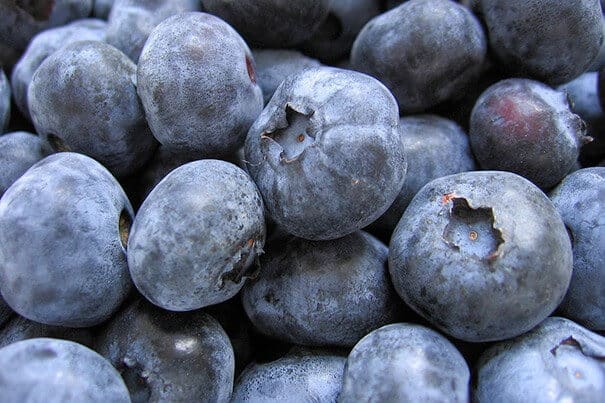The foods we eat play a significant role in our health. Scientists are discovering how eggs, nuts, dairy products, vegetables and even coffee can help protect against health problems. Nutrition 2018 will feature the latest research into how adding certain foods to our diet might help lower risk for diabetes, cancer, neurodegenerative diseases and other health issues.
Nutrition 2018 is the inaugural flagship meeting of the American Society for Nutrition held June 9-12, 2018 at the Hynes Convention Center in Boston. Contact the media team for abstracts, images and interviews, or to obtain a free press pass to attend the meeting.
Improving diabetes risk factors
Eggs may reduce diabetes risk factors
Findings from a 12-week randomized study of overweight or obese individuals with pre- or type 2 diabetes suggests that eggs may help reduce risk factors associated with diabetes. Participants who ate an egg each day showed greater improvements in fasting blood sugar levels and insulin resistance than those who ate an egg substitute. Furthermore, eating eggs did not significantly change cholesterol levels. Shirin Pourafshar, University of Virginia, will present this research on Sunday, June 10, from 1-3 p.m. in the Hynes Convention Center, Auditorium (poster 102) (abstract).
Daily pecans might lower cardiometabolic risk factors
After four weeks of eating a small handful (about 1.5 ounces) of whole pecans daily, overweight adults age 45 or older who were otherwise healthy showed favorable changes in cardiometabolic risk factors including blood sugar levels, insulin resistance and insulin-producing cell function, compared to when study participants consumed a diet similar in total fat and fiber but without daily pecans. Additional research is required to determine if a small daily portion of pecans would help lower the risk of cardiovascular disease and type 2 diabetes for middle-aged and older adults who are overweight or obese. Diane L. McKay, Friedman School of Nutrition Science and Policy at Tufts University, will present this research on Monday, June 11 from 3-5 p.m. in the Hynes Convention Center, Room 309 (abstract).
Combating cancer and loss of motor function
Homing in on dairy products that lower colorectal cancer risk
Researchers studying 101,677 people, ages 54 to 83 years, found that not all dairy products are equal when it comes to reducing colorectal cancer risk. Study participants who consumed low-fat or fermented dairy products such as yogurt showed the lowest risk for developing colorectal cancer. Yumie Takata, Oregon State University, will present this research on Monday, June 11, from 1-3 p.m. in the Hynes Convention Center, Hall D (poster 831) (abstract).
Vegetables and berries help reduce Parkinsonism risk
As a follow-up to a study that linked a healthy diet with a reduced risk of Parkinsonism (a group of neurological disorders that cause movement problems similar to those seen in Parkinson’s disease), researchers followed 706 people for an average of 4.6 years to find out if consuming fruits and vegetables may be specifically associated with lowered risk. Their analysis revealed that eating more vegetables (especially green leafy vegetables) and berries, but not other fruits, may reduce the risk of Parkinsonism and slow its progression in older adults. Puja Agarwal, Rush University Medical Center will present this research on Sunday, June 10, from 8 a.m.-6 p.m. in the Hynes Convention Center, Auditorium (poster 22) (abstract).
Components of edible mushrooms fight inflammation
An analysis of PPEP-1 and PPEP-2 polysaccharides from the edible mushroom Pleurotus eryngii reveals that these complex carbohydrates can inhibit induced inflammatory responses. The new results are the first to demonstrate these anti-inflammatory properties and highlight the potential of PPEP-1 and PPEP-2 as dietary supplements to reduce inflammatory responses. Gaoxing Ma, Nanjing Agricultural University; University of Massachusetts, Amherst; will present this research on Tuesday, June 12, from 11:15-11:30 a.m. in the Hynes Convention Center, Room 309 (abstract).
Coffee could be good for the liver
A study of more than 14,000 people, ages 45 to 64, finds that people who drink three or more cups of coffee a day have a lower risk of liver-related hospitalizations than those who never drink coffee. The new findings provide evidence that coffee drinkers may have a lower risk for liver disease. Emily Hu, Johns Hopkins Bloomberg School of Public Health, will present this research on Sunday, June 10, from 1-3 p.m. in the Hynes Convention Center, Auditorium (poster 55) (abstract).
Please note that abstracts presented at Nutrition 2018 were selected by a committee of experts but have not generally undergone a rigorous peer review process such as that required for publication in a scientific journal. As such, the findings presented should be considered preliminary until a peer-reviewed publication is available.
If our reporting has informed or inspired you, please consider making a donation. Every contribution, no matter the size, empowers us to continue delivering accurate, engaging, and trustworthy science and medical news. Independent journalism requires time, effort, and resources—your support ensures we can keep uncovering the stories that matter most to you.
Join us in making knowledge accessible and impactful. Thank you for standing with us!

